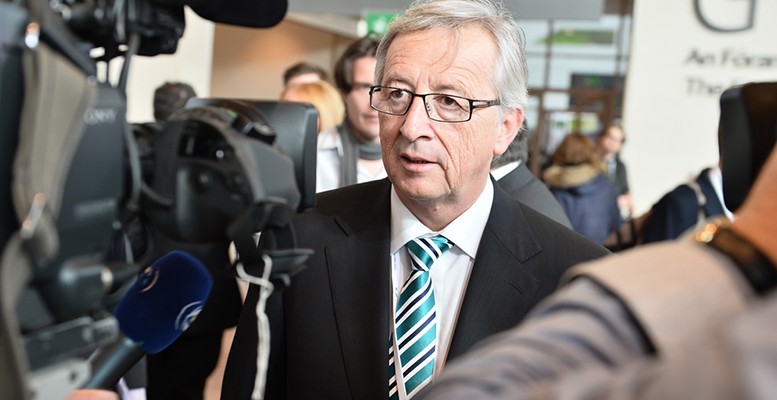Nick Ottens via Atlantic Sentinel | The president’s proposals contradict the “multispeed Europe” that has been endorsed by France, Germany, Italy and Spain.
European Commission president Jean-Claude Juncker’s proposal for closer EU integration is a throwback to the false dichotomy of more or less Europe.
In his annual State of the Union address, the Luxembourger called for merging the presidencies of the European Commission and the European Council, completing the eurozone and shifting from unanimity to majority voting on important decisions.
His plans contradict the vision of a “multispeed Europe” that was endorsed by the governments of France, Germany, Italy and Spain earlier this year.
Widely acceptable
Between the extremes of federalization and reducing the EU to a free-trade zone, integration at multiple speeds is the most widely acceptable blueprint for the bloc. It accepts the sometimes messy reality rather than attempting to impose a big idea on unwilling member states.
Aside from the euro, which nine out of the EU’s 28 countries don’t use, there is the Schengen free-travel area, which from Ireland and the United Kingdom are exempt. There is the EU foreign and security policy, from which Denmark has an opt-out. There is the Charter of Fundamental Rights, which Poland hasn’t signed.
Rather than seeing these exemptions as failures of integration, they can be a model for future cooperation.
For example, there are many countries in the EU that wish to pool their defense procurement. A multispeed Europe would allow them to do so within the context of the EU without militarizing the union as a whole.
There are others that wish to harmonize their tax rates. Let them! They don’t need to wait for all 28 (soon 27) to agree.
Challenge
The challenge will be preventing a multispeed Europe from morphing into a two-speed Europe.
If integration at different speeds leads only to a tighter eurozone core, as opposed to flexibility, that could exacerbate Euroskepticism in countries like Finland and the Netherlands while leaving non-euro states, like Poland and Sweden, feeling like second-class members.





